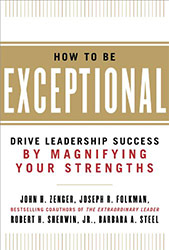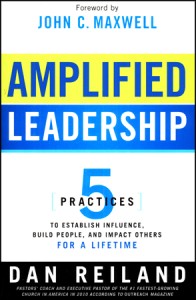Embrace Insecurity
How do you handle it when you are feeling insecure or afraid? I discovered an answer that surprised me…and it may surprise you!
Video Transcript
A few years ago I realized that I was really insecure, and I could see how that was affecting my life. My lack of security and lack of confidence was having a big negative effect, and I decided I was going to become more confident.
For over a year I did everything I could think of to grow my confidence. The truth is that none of it worked. I was still plagued by this feeling of insecurity. And I remember laying in bed with my wife one night complaining about it. She rolled over at one point half asleep and she said “I think you just need to embrace it”. I said “What?” and she said, “Embrace your insecurity”. Then she rolled back over and went to sleep, and I was so mad.
Embrace it? I’ve been trying for a year to get rid of it. What do you mean embrace it? What does that even mean?
I couldn’t get that thought out of my head, so for the next few days I thought about it and I figured that since nothing else works I might as well. I’m going to try it. I’m going to embrace it, accept it, and be open with other people, and just admit that this is what’s going on, and that’s how I’m feeling.
So a couple of weeks later I’m in a meeting at work and we’re talking about a project, and I was assigned some things to do that I didn’t really know how to do. I could feel that insecurity rising up in me. So I stopped and I said, “I’m feeling really insecure right now. I don’t really know how to do these things and I’m afraid I’m going to mess up the project and disappoint you. I don’t want to let you guys down.” So we talked a little bit and they were encouraging. We made some plans and went on- It was fine.
After the meeting one of the people came back to me and said “That was amazing! Where did you find the courage to share all of that with us? You must actually be really confident and secure to be able to put all of that out there.” And I thought “Alright! It worked! Finally! I’m insecure and I’m just going to tell everybody.”
Now here’s the deal. Years later, I find that I’m still insecure at times. I still have that feeling rise up inside me, but it no longer controls me. Hiding those things and denying those things, or just trying to overcome them somehow actually empowers them to have a bigger impact on your life. What I discovered was that embracing and accepting those feelings, and then facing them and making decisions, that moving forward in spite of them actually empowers you.
Now your thing might not be insecurity. All of us have some fears or weaknesses or things that we struggle with that sabotage us. I want to encourage you to consider a different route in dealing with them. Rather than just trying to pretend that they’re not there, or ignore them, face them. Embrace them. Even be open about it with other people. You may just find that that’s the pathway to freedom.






